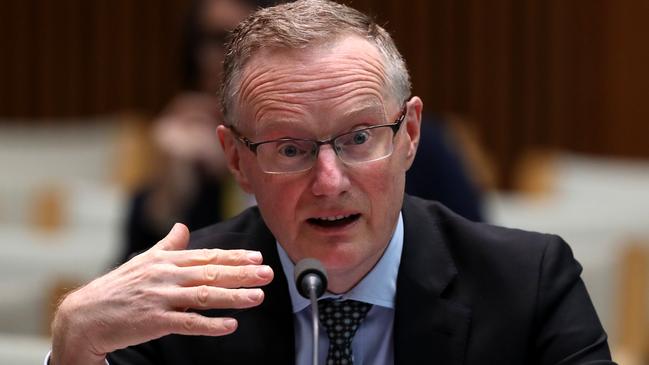RBA implores banks to not over-squeeze credit supply
RBA governor Philip Lowe is understood to have met each of the big four bank chiefs individually in recent weeks.

Reserve Bank governor Philip Lowe is understood to have met the big four bank chiefs in recent weeks to caution them against an overzealous tightening of credit supply in response to lending rules and the Hayne royal commission.
A key message conveyed was that, while prudent lending was the aspiration, the banks were in some instances turning away good loans or not taking enough risk to warrant even a small tick-up in arrears, senior sources at the big four banks said. The meetings were conducted separately with each bank.
The major lenders are walking a fine line, though, as they seek to meet responsible lending requirements and move away from controversial benchmarks such as the Household Expenditure Method to assess loan serviceability.
The Hayne royal commission has added another level of scrutiny and sources said several banks had introduced extra lines of checking and options to refuse loans, or in some cases reverse decisions within their credit departments.
The meetings with Dr Lowe are believed to have been held ahead of last week’s inaugural quarterly statement from the RBA-led Council of Financial Regulators, which expressed similar concerns.
“Members discussed how an overly cautious approach by some lenders to incorporating relevant laws and standards into loan approval processes may be affecting lending decisions,” said the CFR, which consists of the RBA, prudential regulator the Australian Securities & Investments Commission and Treasury.
In its December board minutes released yesterday, the RBA made further public sentiments on the housing market, including that tighter credit conditions were impeding the supply of mortgages and loans to small business.
“On the supply side, credit conditions were tighter than they had been for some time,” the minutes said. “Members noted that the focus on responsible lending obligations in response to the Royal Commission into Misconduct in the Banking, Superannuation and Financial Services Industry was likely to have reduced some lenders’ appetite for lending to both households and small businesses.
“Members noted that growth in lending to investors had remained very weak and growth in lending to owner-occupiers had continued to ease, to be 5 per cent to 6 per cent in annualised terms.
“The slowing in housing credit growth had been almost entirely accounted for by the major banks, where the rate of growth in lending had been the slowest in many years. Housing lending by other financial institutions had continued to grow more strongly.”
Non-bank lenders have won share and pursued more growth as the banks have pulled back from parts of the mortgage market. That has come against the backdrop of falling house prices, particularly in Sydney and Melbourne, which has some banking analysts, including those at UBS, warning of a potential credit crunch.
Another analysis by Goldman Sachs points to an “orderly decline” in house prices and construction, and suggests slower loan processing by banks will only “temporarily” add pressure to the housing sector.
Economists will keep a keen eye on employment levels and wage growth as the housing market cools.
Josh Frydenberg declared this week that he would do nothing to restrict the “free flow of credit”, as Treasury warned in its Mid-Year Economic and Fiscal Outlook that the accelerating property price slide could hurt household consumption and economic growth.
In the latest board minutes, the RBA also highlighted a pick-up in business lending in the second half of the year, with the major banks stepping up their loan writing to large businesses in recent months.
But that had not translated to the smaller end of the business sector, the minutes said.
“By contrast, lending by banks to small businesses had increased only modestly over the preceding few years and had been flat in 2018,” the minutes said.
“Moreover, small businesses’ perceptions of their access to finance had deteriorated sharply over the year, according to the Sensis survey.
“Members noted that the Australian government had recently announced a number of initiatives to support lending to small businesses.”
In an attempt to boost lending to small business and their access to capital, the government kicked off two new measures this year. It has started work on a UK-modelled private equity fund and has also outlined a $2 billion Australian Business Securitisation Fund.




To join the conversation, please log in. Don't have an account? Register
Join the conversation, you are commenting as Logout